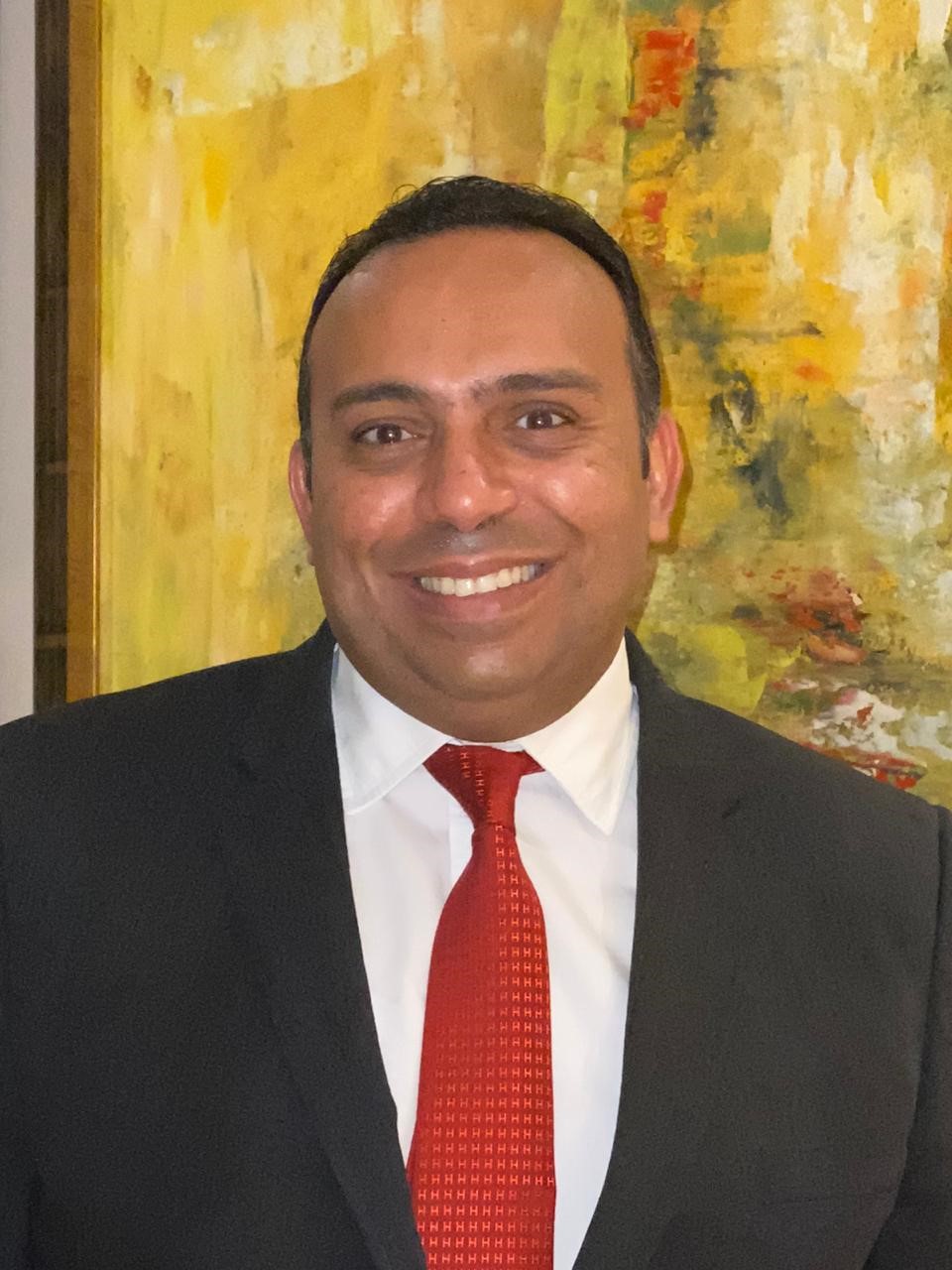CAIRO – 28 October 2021: The World Bank’s Board of Executive directors issued a statement Thursday, approving a US$360 million Development Policy Financing (DPF) loan program to support Egypt’s post-pandemic recovery and enhance the country’s prospects for sustainable and inclusive growth.
et interviewed the loan program leaders: Mark Eugene Ahern, WB’s Lead Country Economist and Mohamed Hisham El-Shiaty, Senior Private Sector Specialist, to discuss Egypt’s growth during the pandemic crisis, and specifics of the fund program.


The program focuses on three thematic pillars, including: enhancing macro-fiscal sustainability, enabling private sector development, and fostering women’s economic inclusion.
Below is the interview:
et: What is the duration of the program?
Egypt Inclusive Growth for Sustainable Recovery program duration is around 17 months, with the closing date planned for March 31st, 2023.
et: Was the financing program ($360 million) requested by the Egyptian government or proposed by the World Bank?
As with other World Bank engagements, the request for this Development Policy Financing (DPF) was made by the Government of Egypt to the World Bank. Meanwhile, the exact size of the loan was agreed based on a number of criteria including the total envelope allocated for Egypt for this fiscal year and its distribution across the different priority engagements for the Government.
In addition, the Asian Infrastructure Investment Bank (AIIB) is considering to extend the same amount of financing to the Government of Egypt in parallel to the World Bank financing using the same agreed package of reforms. If approved, this would bring the total financing provided under this program by both institutions to US$ 720 million.
et: You have mentioned that among the challenges Egypt face is that its export competitiveness remains weak. This week, the Egyptian gov’t issued a report saying that Egypt skipped the trap of commodity dependence, and its negative consequences thanks to its diversified exports. How far do you see Egypt from strong export competitiveness?
Egypt has remained one of the few countries that has maintained positive growth during the crisis. The reform program implemented since 2015, as well as the quick action on fiscal and monetary measures to ease the effect of the pandemic on firms and households have supported Egypt’s economy during the crisis.
Building on the progress that Egypt has made thus far, it will be good for Egyptian exports to deepen their value-added content and further integrate in global value chains.
Multiple measures can be taken to improve productivity and strengthen export competitiveness by increasing domestic competition, providing a stable macroeconomic environment, reducing the cost of doing business, investing in innovation and technology adoption, and harmonizing quality standards with export destinations.
This operation supports that agenda with the adoption of the executive regulations of the Customs Law which can help facilitate trade and strengthen export competitiveness, initiatives to encourage macro stability, and reforms to remove obstacles to women’s participation in the economy.
et: How does this finance program promote inclusive private sector, what steps/cooperation required from Egypt as part of the program?
All reforms supported by this operation have already been implemented by the government under the National Reform Program. The WB’s program supports the transition of the Egyptian economy to a more inclusive, private sector led growth model through multiple reforms.
This operation addresses a range of critical factors, including trade barriers due to policy and facilitation gaps to promote private sector participation and performance.
The government has therefore issued the new Customs Law and its Executive Regulations to address these gaps. The agreed reform package also includes the issuance of the new Bankruptcy law which is intended to help ease business exit and business restructuring limitations that increase investment risks.
Inclusiveness as a policy objective is also addressed by this program under the gender pillar which encompasses several reforms to enable women’s effective economic participation in the Egyptian economy, by removing regulatory barriers hindering female labor participation, preventing, addressing, and responding to gender-based violence and improving female access to finance.
et: What are priority areas that will help promote private sector/gender inclusion in Egypt’s business?
In 2020, the World Bank Group (WBG) completed a comprehensive Country Private Sector Diagnostic, which identified five overarching priority areas and respective actions to help promote private sector development. Continued government commitment to this reform agenda and persistent implementation effort will ensure the sustainability of reforms.
Three out of the five policy recommendations helped inform the new program design, including trade facilitation and trade policy, fostering domestic competition, and levelling the playing field and improving commercial judicial system through automation and transparency.
For gender inclusion, the legal and regulatory changes to foster women’s economic inclusion supported under this operation are necessary and historic but not sufficient reforms. To sustainably achieve progress in this agenda, we need to address persisting social norms around gender roles, power dynamics and social norms to advance the overall wellbeing of girls and women in Egypt.
et: With no expectations the pandemic will end soon, how can your operation help Egypt’s economy in the face of the pandemic?
The policy reforms in the operation address a number of important impediments to sustainable private sector led growth and are important for Egypt’s economic recovery from the pandemic.
Some of the reforms are also of particular importance in the short-term response. For example, the fintech reform supports digital financial activity which has surged since the pandemic, the justice reform supports more efficient bankruptcy resolution when more firms are in stress as a result of the crisis, while the greater opportunities created by the gender reforms are important given the particularly severe impact that COVID-19 has had on women.
et: How do you see steps taken by Egypt in the last years, including Haya Karima initiative and zero slums in Cairo is helping to eliminate poverty and achieve sustainable development?
This DPF operation supports a number of reforms, including: steps to enhance trade facilitation, expand digital finance, remove obstacles to women’s participation in the labor forces and support macro stability.
These cross-economy reforms complement Government initiatives aimed at creating more opportunities for economic development (and job creation) in disadvantaged regions or localities – such as through the Haya Karima initiative and zero slums in Cairo.
et: What is the plan outlined by your program to secure more engagement for private sector in the solid waste management system? And what is Egypt required to do in this regard?
Law 202/2020 on solid waste management, which is supported by our program, provides incentives for private firms to shift their role in waste management from operators to long term investors.
The next step after the promulgation of the Law is for the Government to develop secondary regulations and economic instruments that ensure the bankability of private intervention and secure its sustainability in different parts of the waste management value chain. Reforms in solid waste management would have a demonstration effect, introducing viable public private partnerships, which could then be replicated in other sectors.
et: Are there any decisions taken to avoid/mitigate any risks that could hinder achieving the program’s goals?
As with any development initiative there are factors that could put at risk the successful achievement of the program objectives. To mitigate the likelihood or impact of some of these risks, a number of steps have been taken by the World Bank and the Government.
These steps include: the provision of technical support by the World Bank in each of the reform areas, the ongoing efforts of the Ministry of Finance and the Central Bank to pursue macro stability, and the coordination of the reform agenda through the inter-ministerial Economic Committee. A key mitigating factor is also the alignment of the priority structural reform areas identified under the recently launched National Structural Reform Program as well as the overall Government reform program “Egypt Takes Off” with the priority actions and policy reforms supported under this operation.
Comments
Leave a Comment